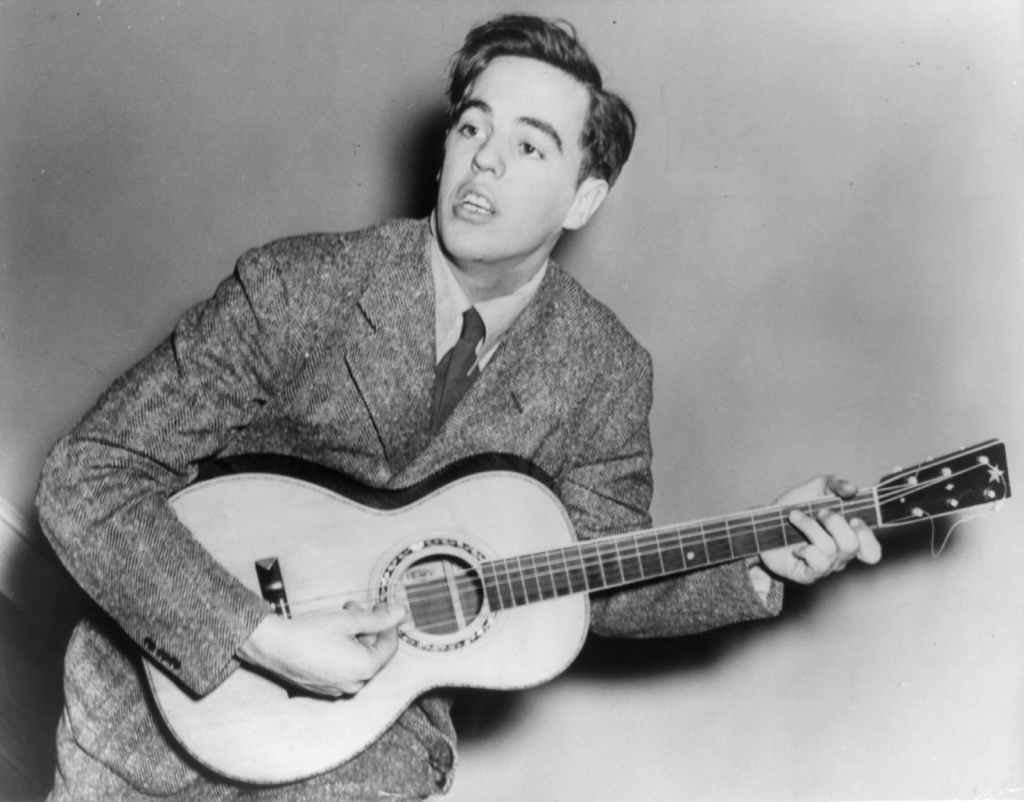Alan Lomax documented traditional cultures in America, the Caribbean and Europe. Lomax Collection/Prints and Photographs Division.
This story was first printed in the November/December issue of the Library of Congress Magazine.
For decades, Alan Lomax traveled across America, the Caribbean and Europe, with a recorder and a camera in hand, trying to document traditional folk cultures before they disappeared.
Lomax was, in fact, the most famous American folklorist of the 20th century — the first person to record blues greats Muddy Waters and Lead Belly, the man who took down the oral histories of Jelly Roll Morton and Woody Guthrie, the chronicler of religious rites in Haiti and “ring shout” rituals from the Sea Islands off the Atlantic coast.

Lead Belly with his wife, Martha Promise. Lomax Collection/Prints and Photographs Division.
In his notebooks, Lomax documented his encounters with performers, his extensive travel and his collaborations with famous figures such as Pete Seeger, Zora Neale Hurston and his folklorist father, John Lomax. The Lomax family, friends and colleagues transcribed many of the performances and interviews he undertook during his years of fieldwork — including his stint as a Library employee from 1937 to 1942.
By the People, a web-based volunteer program at the Library, allows the public to assist such efforts by transcribing and tagging historical documents from its collections — work that improves the searchability, readability and accessibility of handwritten and typed historical documents online. Recent campaigns have focused on the papers of Abraham Lincoln, Walt Whitman, leaders in the fight for women’s suffrage, Red Cross founder Clara Barton and baseball executive Branch Rickey.
The new campaign — drawn from the Lomax papers at the Library — offers thousands of pages he produced during his field journeys, from New Hampshire to Mississippi to Haiti. In them, Lomax records the story of gospel singer Bessie Jones, visits the Gullah-Geechee singers of the Sea Islands and thumbs through Waters’ record collection. You can discover these rich traditions by helping transcribe Lomax’s notebooks and letters — documents that serve as the bedrock of our understanding of 20th-century American and Caribbean folk music and culture.

The incomparably named Bog Trotters, from Galax, Virginia. Lomax Collection/Prints and Photographs Division.
Subscribe to the blog— it’s free! — and the largest library in world history will send cool stories straight to your inbox.

















